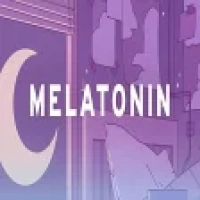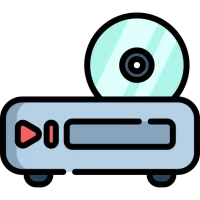
Latest Version
latest
May 26, 2024
Half Asleep
Games
Windows
55,837
Report a Problem
More About Melatonin
## Melatonin: A Comprehensive Guide
### Introduction
Melatonin, a hormone primarily produced by the pineal gland in the brain, plays a crucial role in regulating sleep-wake cycles. Often referred to as the "sleep hormone," melatonin's production increases in the evening as it gets dark, promoting sleepiness, and decreases in the morning with exposure to light, aiding wakefulness. Over the past few decades, melatonin has gained popularity as a dietary supplement for addressing sleep disorders and other health issues. This guide provides an in-depth look at melatonin, its functions, benefits, and potential side effects, as well as its application in various health contexts.
### The Physiology of Melatonin
#### Production and Regulation
Melatonin production is influenced by the light-dark cycle. The suprachiasmatic nucleus (SCN) of the hypothalamus, which serves as the body's master clock, receives information about light exposure from the eyes and signals the pineal gland to either suppress or stimulate melatonin production. During the day, light inhibits melatonin secretion, while darkness triggers its release, facilitating the transition to sleep.
#### Mechanism of Action
Melatonin acts on melatonin receptors in the brain, specifically MT1 and MT2 receptors, to regulate sleep and circadian rhythms. It helps synchronize the body's internal clock with the external environment, promoting not only sleep onset but also maintaining a stable sleep cycle.
### Uses and Benefits of Melatonin
#### Sleep Disorders
Melatonin is widely used to treat various sleep disorders, including:
- **Insomnia**: Studies have shown that melatonin can reduce the time it takes to fall asleep, increase total sleep time, and improve overall sleep quality.
- **Jet Lag**: Melatonin helps reset the body's internal clock when traveling across time zones, reducing symptoms of jet lag such as fatigue and disorientation.
- **Shift Work Disorder**: For individuals who work night shifts or irregular hours, melatonin can improve sleep duration and quality by adjusting the sleep-wake cycle.
#### Other Health Benefits
Beyond sleep, melatonin has been studied for its potential therapeutic effects in various conditions:
- **Antioxidant Properties**: Melatonin has strong antioxidant effects, protecting cells from damage caused by free radicals and oxidative stress.
- **Immune System Support**: It may enhance immune function by modulating the activity of immune cells.
- **Cancer Therapy**: Research suggests that melatonin might inhibit the growth of certain cancer cells and enhance the effectiveness of chemotherapy and radiation therapy.
- **Neuroprotective Effects**: Melatonin may protect against neurodegenerative diseases like Alzheimer's and Parkinson's by reducing inflammation and oxidative damage in the brain.
- **Cardiovascular Health**: It has been linked to improved blood pressure regulation and cardiovascular health due to its antioxidant and anti-inflammatory properties.
### Dosage and Administration
#### Recommended Dosage
The optimal dosage of melatonin varies depending on the condition being treated, age, and individual response. Commonly recommended dosages are:
- **Sleep Disorders**: 0.5 to 5 mg taken 30 to 60 minutes before bedtime.
- **Jet Lag**: 0.5 to 5 mg taken before bedtime at the destination, starting on the day of travel and continuing for a few days after arrival.
- **Shift Work**: 1 to 3 mg taken before the desired sleep time during the day.
It's important to start with the lowest effective dose to minimize potential side effects.
#### Forms of Melatonin
Melatonin is available in various forms, including:
- **Tablets and Capsules**: The most common form, available in immediate-release and extended-release formulations.
- **Liquid**: Provides flexibility in dosing and is often used for children.
- **Sublingual**: Placed under the tongue for faster absorption.
- **Gummies**: A palatable option for those who have difficulty swallowing pills.
### Potential Side Effects and Precautions
#### Common Side Effects
Melatonin is generally considered safe for short-term use. However, some individuals may experience side effects, including:
- Drowsiness or grogginess
- Headaches
- Dizziness
- Nausea
#### Long-Term Use and Safety
The long-term safety of melatonin use is less well-studied. While short-term use is typically safe, prolonged use should be discussed with a healthcare provider, especially for children, pregnant or breastfeeding women, and individuals with underlying health conditions.
#### Interactions with Medications
Melatonin can interact with various medications, including:
- **Blood Thinners**: It may enhance the effects of anticoagulants, increasing the risk of bleeding.
- **Immunosuppressants**: Melatonin might interfere with the action of immunosuppressive drugs.
- **Diabetes Medications**: It can affect blood sugar levels, requiring adjustments in diabetes medication.
### Melatonin in Special Populations
#### Children
Melatonin is often used to address sleep issues in children, particularly those with developmental disorders such as autism spectrum disorder (ASD) and attention-deficit/hyperactivity disorder (ADHD). While short-term use appears safe, long-term effects are not well understood, and dosing should be guided by a healthcare professional.
#### Elderly
Melatonin production decreases with age, leading to sleep disturbances in many older adults. Supplementation can be beneficial, but lower doses are recommended due to changes in melatonin metabolism with aging.
### Conclusion
Melatonin is a versatile supplement with a well-established role in managing sleep disorders and potential benefits in other health areas. While generally safe for short-term use, it should be used with caution and under medical supervision, particularly for long-term use and in special populations. As research continues to unfold, melatonin's full therapeutic potential and safety profile will become clearer, helping to guide its use in various medical contexts.
### References
1. Buscemi, N., Vandermeer, B., Hooton, N., Pandya, R., Tjosvold, L., Hartling, L., ... & Klassen, T. P. (2006). The efficacy and safety of exogenous melatonin for primary sleep disorders: a meta-analysis. *Journal of General Internal Medicine*, 21(12), 1151-1158.
2. Herxheimer, A., & Petrie, K. J. (2002). Melatonin for the prevention and treatment of jet lag. *Cochrane Database of Systematic Reviews*, (2).
3. Seabra, M. L., Bignotto, M., Pinto, L. R., Jr, & Tufik, S. (2000). Randomized, double-blind clinical trial, controlled with placebo, of the toxicity of chronic melatonin treatment. *Journal of Pineal Research*, 29(4), 193-200.
4. Pandi-Perumal, S. R., Srinivasan, V., Spence, D. W., Cardinali, D. P., & Maestroni, G. J. (2007). Role of the melatonin system in the control of sleep: therapeutic implications. *CNS Drugs*, 21(12), 995-1018.
5. Zhdanova, I. V., Wurtman, R. J., Regan, M. M., Taylor, J. A., Shi, J. P., & Leclair, O. U. (2001). Melatonin treatment for age-related insomnia. *Journal of Clinical Endocrinology & Metabolism*, 86(10), 4727-4730.
|
|
|
|




























 Games
Games Desktop Enhancements
Desktop Enhancements Social & Communication
Social & Communication DVD & Blu-ray
DVD & Blu-ray Security & Anti virus
Security & Anti virus Office & Business Tools
Office & Business Tools Videos & Editing
Videos & Editing System Tuning & Tools
System Tuning & Tools File Transfer and Networking
File Transfer and Networking Developer Tools
Developer Tools Travel & Navigation
Travel & Navigation Browsers & Plugins
Browsers & Plugins VPN
VPN Photo & Design
Photo & Design